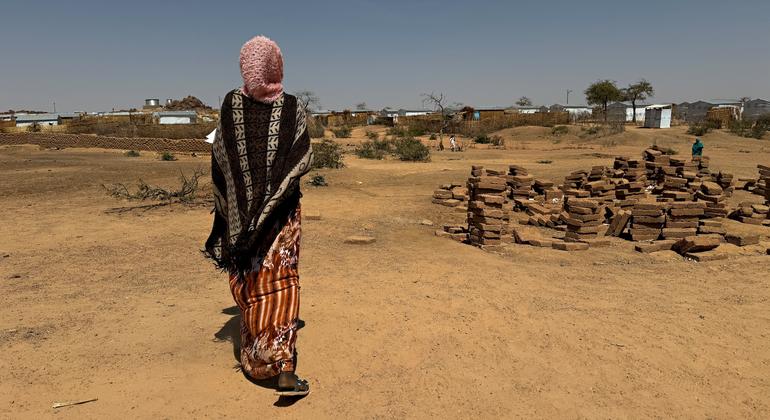Staggering scale of Sudan crisis ‘demands sustained and urgent attention’

Briefing ambassadors in the Security Council, Edem Wosornu, Director of Operations at the UN Office for Coordination of Humanitarian Affairs (OCHA), described the situation as a “crisis of staggering scale and cruelty”.
“It demands sustained and urgent attention,” she emphasized.
Ms. Wosornu detailed the catastrophic toll of the conflict, which erupted between rival militaries vying for power and influence last April.
Since then, more than 12 million people – nearly a quarter of Sudan’s population – have been displaced. Among them over 3.2 million have fled to neighbouring countries as refugees, straining fragile regions already grappling with limited resources.
Widespread atrocities
Fierce fighting continues to rage in densely populated areas, with widespread disregard for international humanitarian law on all sides.
Civilians have been killed and injured in overwhelming numbers, sexual violence is rife, and essential infrastructure – including healthcare and education facilities – lies in ruins.
Deadly diseases such as cholera are also spreading rapidly, as millions face severe hunger and malnutrition.
UN efforts on the ground
Ms. Wosornu highlighted the efforts of UN Emergency Relief Coordinator Tom Fletcher, who recently visited Sudan and neighbouring Chad.
She stated that progress has been achieved in opening critical aid routes and improving humanitarian access, notably the extension of permission for the use of the vital Adre border crossing with Chad.
Also in Chad, Mr. Fletcher announced an immediate allocation of $5 million from the UN Central Emergency Response Fund (CERF) to support overwhelmed local and international responders aiding Sudanese refugees.
While in Sudan, a World Food Programme (WFP) reached the Zamzam camp for internally displaced people in North Darfur last month – the first UN food convoy since famine conditions were confirmed in July.
A wide view of the the Security Council meeting on the situation in Sudan.
Uptick in fighting
However, a second WFP convoy to the camp was delayed by an escalation of fierce fighting, including shocking reports of repeated shelling on the camp itself, which has sent thousands fleeing, Ms. Wosornu said.
“Recent days have seen further reports of civilian casualties due to apparently indiscriminate attacks – including aerial bombardment and artillery shelling – in [the provincial capital] El Fasher and other areas of Darfur,” she added.
An airstrike on a crowded market in Kabkabiya in North Darfur last week reportedly killed dozens of people and injured many more, while operations in El Fasher’s primary hospital were suspended due to an alleged missile strike last Friday, with patients among the casualties.
Call to action
Ms. Wosornu outlined three key asks for Security Council members, calling for an unequivocal demand for warring parties to comply with international norms, spare civilians and essential infrastructure, and end sexual violence as a tool of war.
Alongside this, Council members must use their influence to ensure all relief routes remain open, including cross-border and cross-conflict line routes. She called for bureaucratic hurdles – such as visa delays – to be removed.
Lastly, financial resources must be provided at scale to overcome severe funding gaps. She urged donors to meet the $4.2 billion required to assist 21 million people in Sudan and an additional $1.8 billion for refugee support in seven neighbouring countries.
She concluded her briefing emphasising that while humanitarians will bring intensity, energy and creativity to their mission to assist communities in need, “the only way to end this cycle of violence, death and destruction is for this [Security] Council to rise to the challenge of delivering lasting peace in Sudan.”




